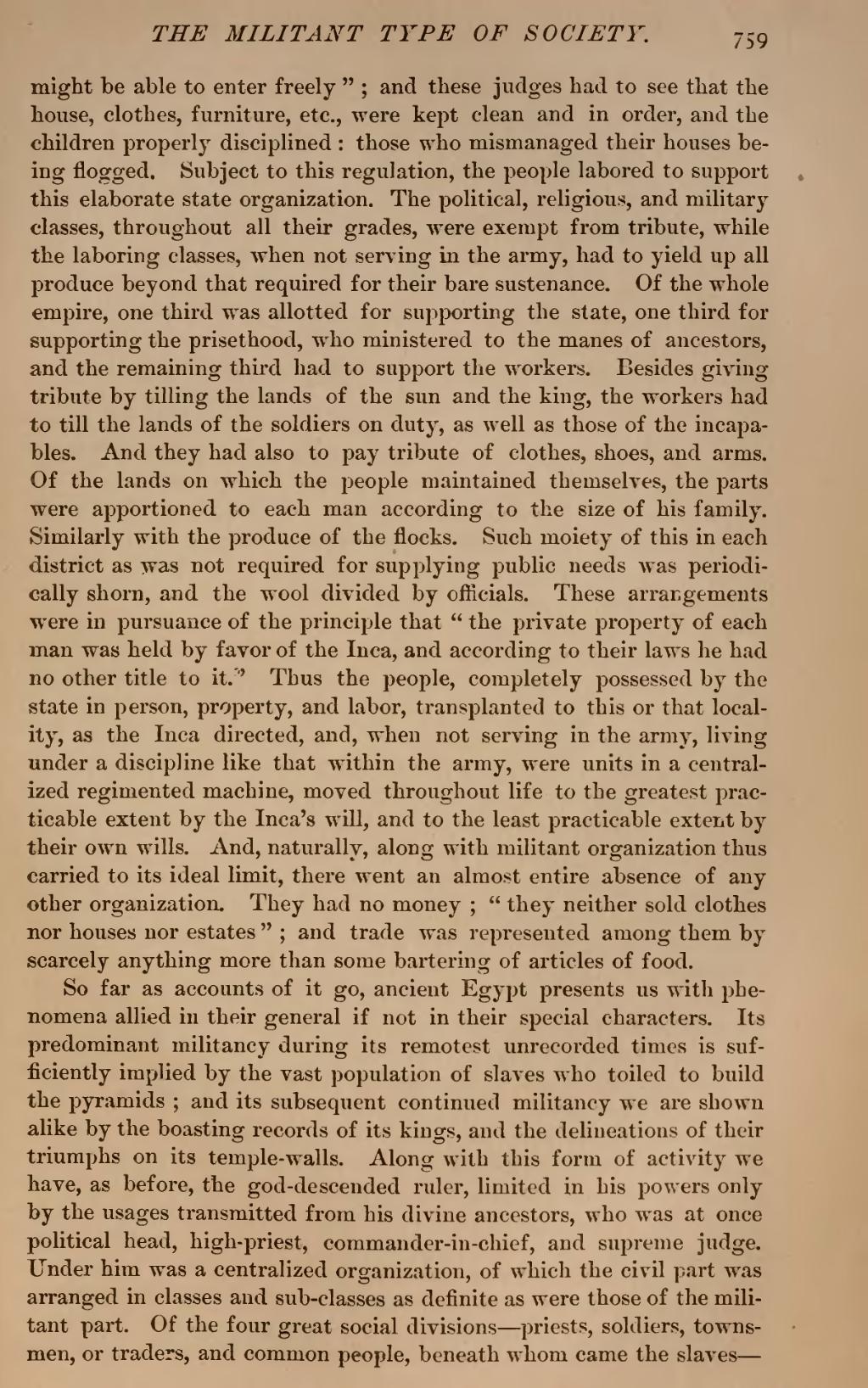might be able to enter freely"; and these judges had to see that the house, clothes, furniture, etc., were kept clean and in order, and the children properly disciplined: those who mismanaged their houses being flogged. Subject to this regulation, the people labored to support this elaborate state organization. The political, religious, and military classes, throughout all their grades, were exempt from tribute, while the laboring classes, when not serving in the army, had to yield up all produce beyond that required for their bare sustenance. Of the whole empire, one third was allotted for supporting the state, one third for supporting the prisethood, who ministered to the manes of ancestors, and the remaining third had to support the workers. Besides giving tribute by tilling the lands of the sun and the king, the workers had to till the lands of the soldiers on duty, as well as those of the incapables. And they had also to pay tribute of clothes, shoes, and arms. Of the lands on which the people maintained themselves, the parts were apportioned to each man according to the size of his family. Similarly with the produce of the flocks. Such moiety of this in each district as was not required for supplying public needs was periodically shorn, and the wool divided by officials. These arrangements were in pursuance of the principle that "the private property of each man was held by favor of the Inca, and according to their laws he had no other title to it." Thus the people, completely possessed by the state in person, property, and labor, transplanted to this or that locality, as the Inca directed, and, when not serving in the army, living under a discipline like that within the army, were units in a centralized regimented machine, moved throughout life to the greatest practicable extent by the Inca's will, and to the least practicable extent by their own wills. And, naturally, along with militant organization thus carried to its ideal limit, there went an almost entire absence of any other organization. They had no money; "they neither sold clothes nor houses nor estates"; and trade was represented among them by scarcely anything more than some bartering of articles of food.
So far as accounts of it go, ancient Egypt presents us with phenomena allied in their general if not in their special characters. Its predominant militancy during its remotest unrecorded times is sufficiently implied by the vast population of slaves who toiled to build the pyramids; and its subsequent continued militancy we are shown alike by the boasting records of its kings, and the delineations of their triumphs on its temple-walls. Along with this form of activity we have, as before, the god-descended ruler, limited in his powers only by the usages transmitted from his divine ancestors, who was at once political head, high-priest, commander-in-chief, and supreme judge. Under him was a centralized organization, of which the civil part was arranged in classes and sub-classes as definite as were those of the militant part. Of the four great social divisions—priests, soldiers, townsmen, or traders, and common people, beneath whom came the slaves—
